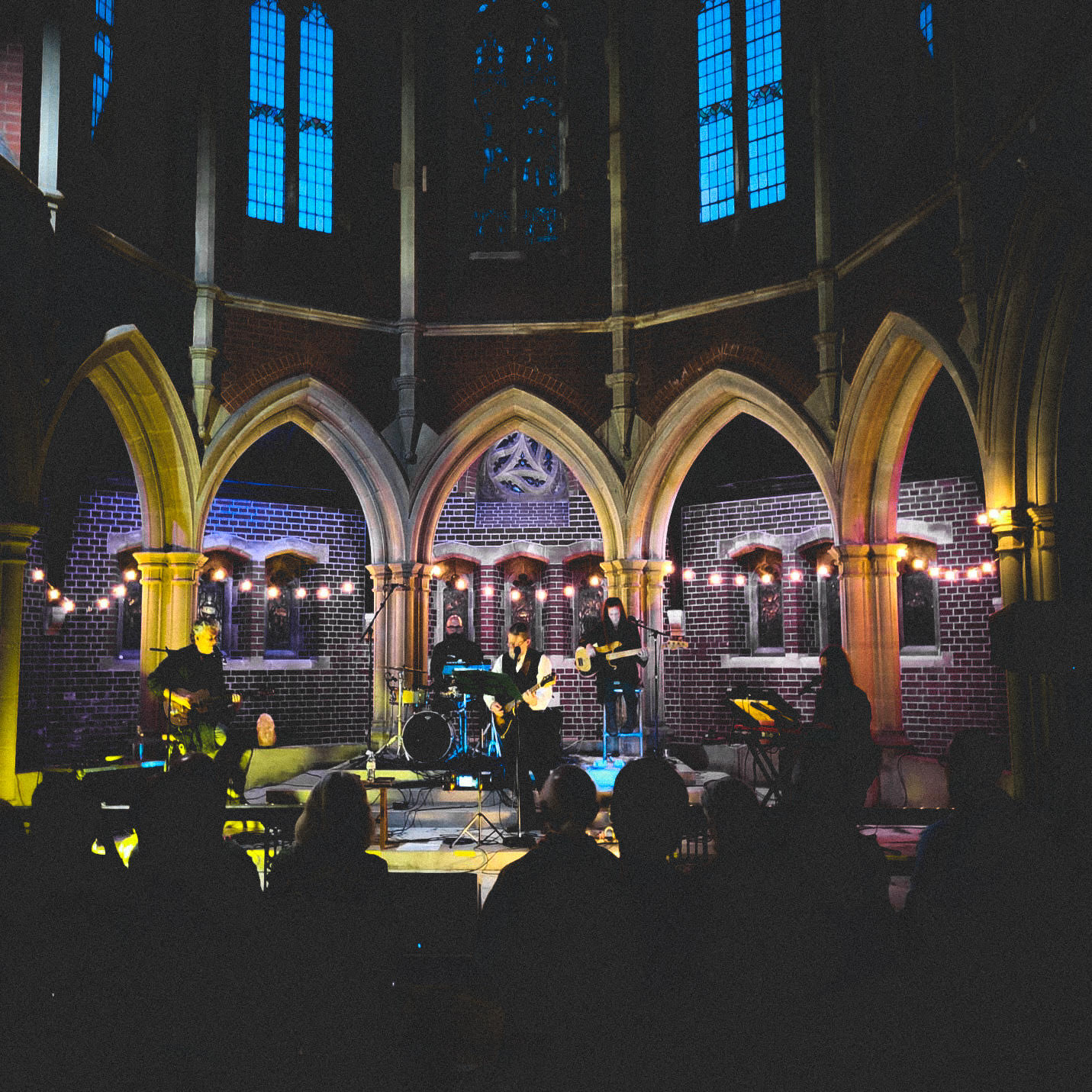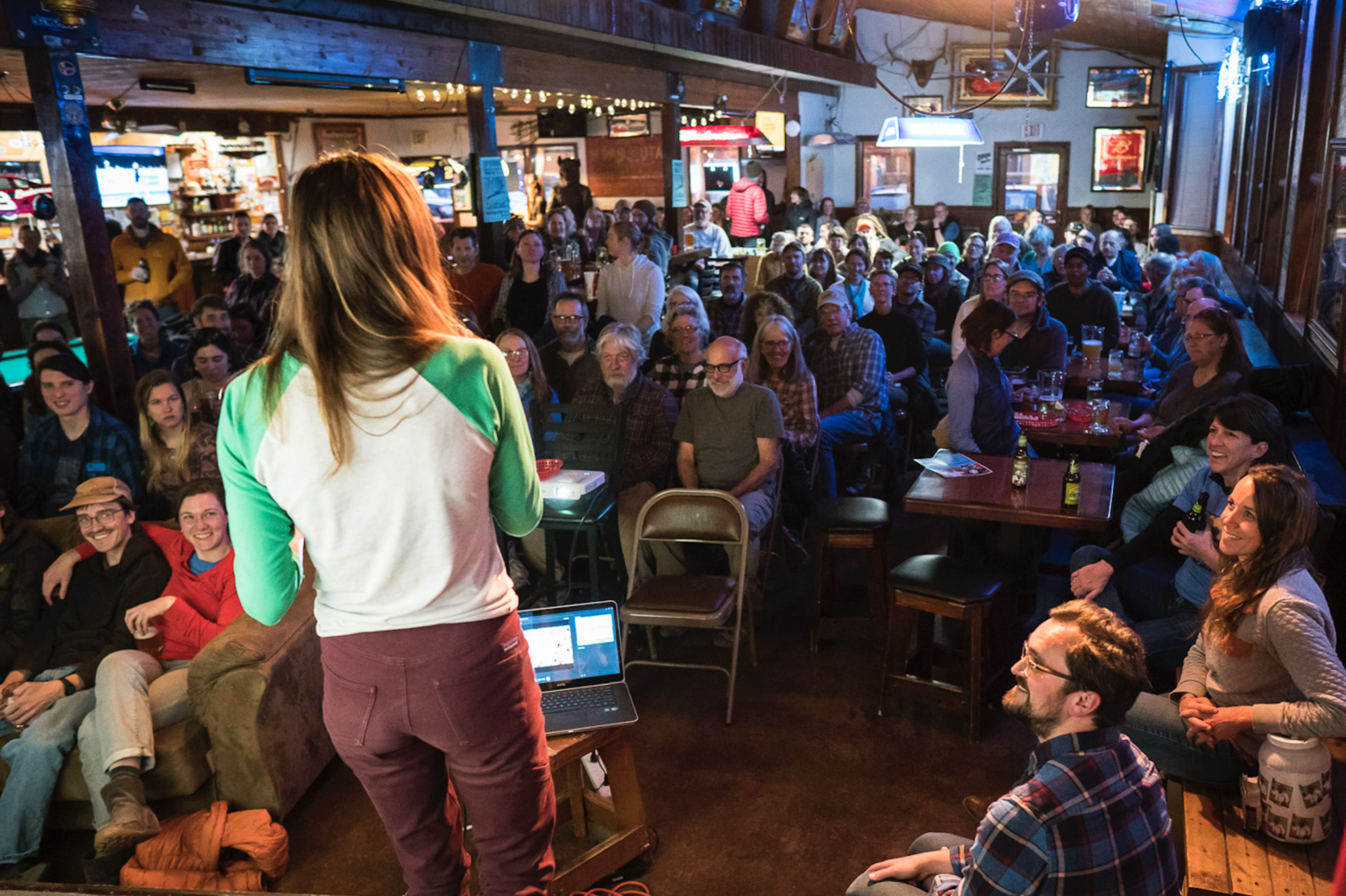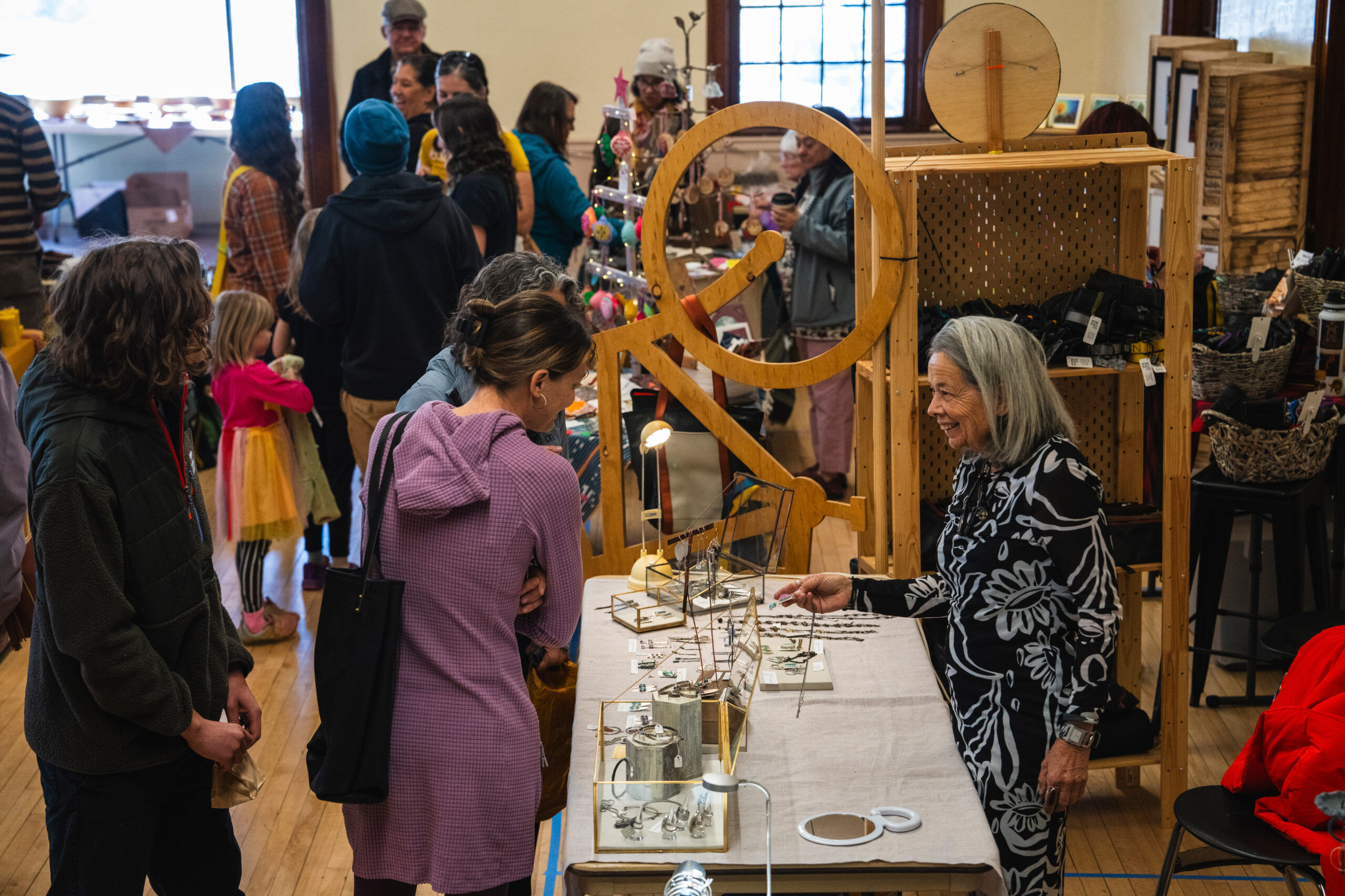Some information may be outdated.
“You can’t have a conversation about dying without giving equal time to the topic of living,” said musician Gregory Hoskins.
Seven years ago, Hoskins partnered with Stephen Jenkinson, an author and activist who started his career working extensively with dying people, to create the project “Nights of Grief and Mystery,” which explores life and death through a performance of music, storytelling, poetry, and ceremony. The event is coming to Moab, sponsored by Grand County Hospice, on Saturday, Sept. 17 at 7 p.m. at Star Hall. Tickets are free, but a donation to the hospice is encouraged.
In 2021, Grand County Hospice cared for 20 patients, according to Director Margy Swenson—the center is on track to care for a similar number this year. The hospice center provides care for patients and also support for their loved ones following the patient’s death.
“The past two years have led to isolation for most of us and loneliness for many. I think we’ve all experienced some sort of losses, be they people or experiences,” Swenson said. “I see this event as an opportunity to explore our own ideas and feelings around life, death, grief, and loss, while also connecting with others who may have had similar experiences.”
Dying has taken up its place culturally in a clumsy way, Hoskins said—in the performance, he and Jenkinson create space to explore the complex relationship we have to dying. By adding music, the performance becomes something “other,” he said, which was echoed by Jenkinson.
“What we’re doing is so old that it’s unrecognizable to contemporary people,” Jenkinson said. “That’s why you can’t make a genre allocation for Nights of Grief and Mystery. What is it? Is it a musical? Is it poetry? Is it word slamming? Is it gospel? The answer is no, you’re wrong on all counts. Those things are relatively recent phenomena, but this thing that we’re doing, it’s fundamentally ceremonial.”
The performance is currently on tour, performing in cities including Dublin, Denver, and Montreal. Hoskins and Jenkinson follow no set map, Jenkinson said, instead relying on residents of a town to contact them and explain why their town would benefit, which is what happened with Moab.
Pam Hackley, a Moab resident, helped bring the event to Moab—she first saw it in 2019 in Salt Lake City, and signed Moab up as a potential hosting community in 2020.
“The performance invited me to explore grief on many levels,” Hackley said, “and to explore what it means, and maybe what has been lost in our society, to be an elder. Throughout, I was spellbound, speechless, and moved to tears and laughter while recognizing parts of myself in the whole mix.”
Hackley said she first encountered grief as a full emotion when her mother was diagnosed with lung cancer in 2001—prior to that, her experience with grief, learned from her family members, was to be stoic.
“Maybe a few tears were okay, but otherwise, bury any feelings,” she said.
But when her mother was diagnosed, the promise of death became a constant in Hackley’s life, rather than something separate. While her mother was in hospice care, Hackley said she began to understand that not only was it alright to grieve—it was necessary.
“At 69, many more family and friends have found the next path, but I have been able to grieve for them with resilience and, oddly, a sense of joy,” she said. “… Key for me is sharing this piece of theater with our fellow Moabites in a way that honors our commonalities and frailties. This is why I was inspired to invite the tour to Moab: it may open up a space for one to later explore these topics with loved ones and the many resources we have in our community.”
Hackley said she has deep gratitude for the Grand County Hospice and her circle of friends for their support in bringing the event to the community.
The last few years have “exacted a savage toll on people’s sense of wellbeing,” Jenkinson said, which has also changed the performance itself. But Jenkinson said touring around the UK in late August offered him and the band a chance to test the performance out and make sure it’s aligned with the state of the world.
“If you’re required to do something live in real-time, something that people can’t press pause on, you want to make sure that the times are recognizable in what you’re doing—not that you’re somehow offering an alternative to, or a distraction from, the times,” Jenkinson said. “I think that is fundamentally irresponsible in a time as troubled as ours.”
He views his purpose with the Nights of Grief and Mystery performance as offering a point of reflection: not everyone is going to like it, he said, but he feels a sense of urgency to spread the message.
“Is it not possible that the time we’re in is some kind of early stage announcement of the proper and necessary undoing of our way of life? Aren’t there enough indications that our consuming way of life is utterly unsustainable? Un-sustaining, too,” he said. “If we don’t course correct in a radical fashion, what will your kids’ generation possibly see when they look back on this very time? That’s the filter, the lens, that the Nights of Grief and Mystery is proceeding with: what will this look like in two scant generations from now?”
Jenkinson argues that people have to become worthy of recognition right now—there’s no use waiting.
“We have to earn whatever regard we might get when we become ancestors, when we’re no longer alive, when we join the ancestral parade,” he said. “Will anybody claim us? Will anybody want to be from us?”
The performance doesn’t sugar-coat anything, Jenkinson said: he believes very strongly in treating an audience as adults, with respect. In doing so, he said, the audience can draw together in a way that is normally inaccessible.
“Here is the undemocratic thing about dying: it will absolutely happen,” Hoskins said. “Everything else in living is left to chance. You may or may not fall in love, you may or may not have stability, you may or may not be treated fairly, and on and on, but you will die. It is a singularity that binds a crowded room together.”
You can reserve tickets at www.mrhmoab.org/events.
Appreciate the coverage? Help keep local news alive.
Chip in to support the Moab Sun News.





